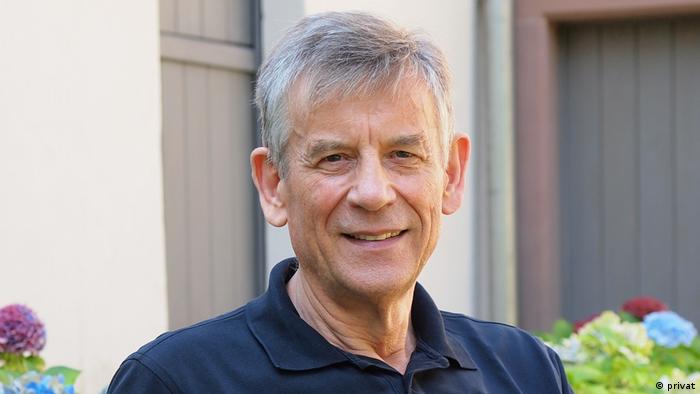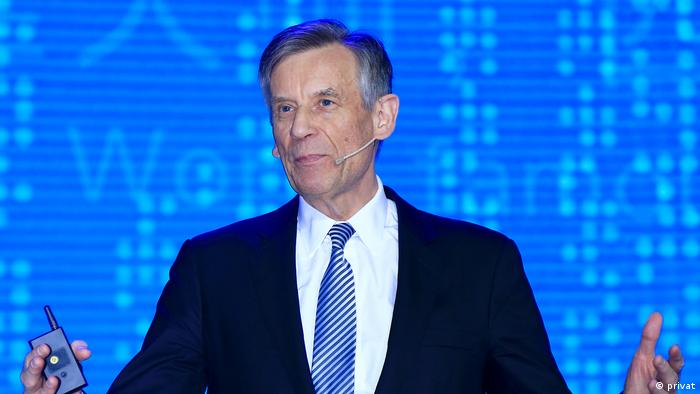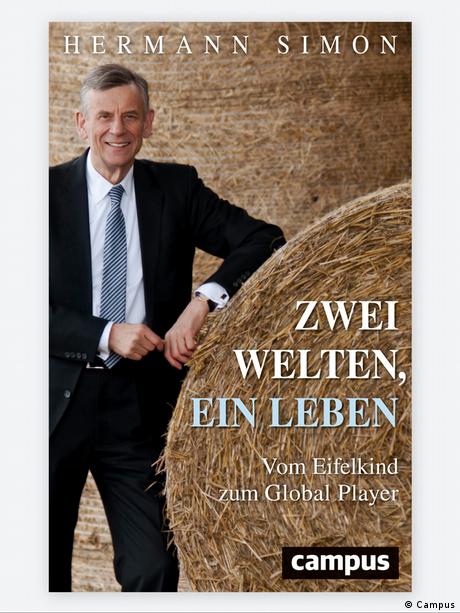If you search on Google for “Hidden Champions”, appear more than 300,000 entries. The Economist and entrepreneur Hermann Simon coined the term 30 years ago. With DW, he talks about his new autobiography.

His schedule reads like the tour schedule of a pop star: Hermann Simon is an internationally sought-after speaker. In more than 50 countries, he was already a guest, alone in the last two years, he has held 30 lectures in China. His books have been translated into 27 languages.
Simon, Born in 1947, grew up on a small farm in the Eifel. He was a Professor of Marketing at the universities of Bielefeld and Mainz. It stops at Harvard and Stanford, mit and INSEAD followed at Keio University in Tokyo and the London Business School. In 1985, he founded the consultancy firm Simon-Kucher & Partners. Today, the company whose CEO he was until 2009, the world market leader in price consulting. His recently published autobiography, “Two worlds, one life” will soon appear also in Chinese and Korean. Further Translations are planned.
Deutsche Welle: According to them, the “Hermann Simon Business School has recently been” in Shangdong/China named. Certainly not an everyday event. How did it come about?
Hermann Simon: I’m very often in China with presentations on the go. The Chinese are fascinated by Germany, in particular, from the successful German “Mittelstand”. I call this medium-sized world market leaders, Hidden Champions, because they are leaders and Champions within the meaning of the world market, on the other hand, in the General Public but little known. This Business school, which goes back to the Initiative of a Chinese company, has set out to spread the Hidden Champions concept in China.
It has played in the naming of the school, perhaps a role that you belong since 2005 to the Top 50 of the world’s most important Management thinker? In the Thinkers50, the corresponding Ranking, you are listed # 25 – by the way, as the only German.
The Chinese watching what’s going on in the world. You will want to pick up the most interesting ideas of Management thinkers and in the Chinese economy.

The Maestro in his Element: Hermann Simon, in a lecture
You have already marked the beginning of the nineties, the Hidden Champions concept. First of all, you couldn’t have guessed that, perhaps, even, how much potential is hidden behind it. How have you discovered this secret champion of the world?
The origin was a discussion with a Harvard Professor who raised the question of why the Germans are in the Export so successfully. That was in 1986, when Germany was for the first Time the world’s export champion. I then thought about it and came to the realization that it’s not the Big that make for this success, but many market-leading medium-sized companies.
In 1989, I was awarded as a high school teacher, the first thesis on this topic, and later a PhD. As the Student 39 this medium-sized world has discovered a market leader. The term Hidden Champion, I have coined in 1990 for the first Time. That was a stroke of luck. This apparent contradiction between the ‘champion’ – known and ‘hidden’ – hidden caused a stir. Today we have in our list 1300 medium-sized German world market leader – more than any other country in the world.
Which is the hidden world of the market leader impressed you – maybe even until today – the most?
There are in Cologne, the company Igus, which is a double the world market leader, namely, in the case of ball bearings made of plastic and in the case of so-called energy chains. I have recently held in Cologne, a lecture, and the name of the company called, but, although the audience is mainly manned by experts from the industry, knew none of this company. Mind you: Igus has at least 3,000 employees in 40 countries, but even in the narrower environment is unknown and the than double the world market leader!
Audio 16:26 listening to live Now 16:26 Min. 
Hermann Simon in conversation
Now her autobiography with the title “Two worlds, one life – From the Eifel child to become a Global Player”. What was for you the stimulus to write this book?
When you get older, then you have to write down the urge, life experiences, and to give young people advice. Myself is the Write aware that I have experienced different things. I’m on a small farm in the Eifel village, in the middle of the province grew up, I later taught a few years in America at leading universities, the Asian Phase. I had become 16 years as a University Professor, I am an entrepreneur and have to leave the University. I think that this is overall, an interesting spectrum, particularly for young people.
Although I have to say that you can’t plan a life like that. You have to make it up to you, what you are doing at the Moment and then will give rise to opportunities. But one needs also the Courage to seize these opportunities. So I gave up, for example, with 48 years of my life, a professorship in entrepreneurship.
How difficult this step was for you at that time from the safe haven of the academic establishment and into the cold water of the private entrepreneurship?
Amazing easily. I have regrets, never will, although my colleagues at the University have not understood this at all. A well-endowed professorship you don’t give up yet, it said. But if there is such a thing as a vocation, my vocation is probably to be entrepreneurs, to work virtually. I was certainly not a bad high-school teachers – at least the former students tell me. I have held interesting Lectures, can also perform quite well. But the entrepreneurial activity has given me ultimately more fulfilling than working in an ivory tower of the University.
Not only performance, but also the success of the consulting firm Simon-Kucher & Partners, have founded then, together with your first doctoral candidates, the price is now 1200 employees in 25 countries, is the world market leader on the subject of consulting and Management. Later, I ask naively: What special role can play the price of a product at all?

I have been asked thousands of times, what is the most Important to the price. And my answer is always: The value for the customer or the customer’s use. Because the willingness to pay a certain price, of course depends on how valuable the customer considers the product.
For example, we have invented for the Deutsche Bahn, the Bahn card – a long-a very popular paid-for discount card. The idea behind it was that people compare the track with the car. In a car, you expect only the price of the petrol. But there are also fixed costs in the car while you have to pay for the train ticket all-in-one price.
So we have the price for the train is split into a fixed part of the Bahncard and a variable part. The Bahncard 50 then only half of the full price. We are thus of the structure of the cars came closer. And for holders of a bahncard to the train, of course, was much more competitive against the car, because you have to pay only 50 percent of the normal price.
To what extent was their research activity as a University Professor, the basis for the success of your business?
The purpose of research is not, of course, to remain in the theoretical space to hang. But it comes to improve the practice – be it in engineering, be it in the corporate governance. That is exactly what we have done and that was my goal. We have also helped many German companies to improve their profits a bit – for Germany a big Problem. Germany was for a long time in the international comparison of 23 OECD countries in the very rear of the profit. With our consultants ‘ activity in terms of price management, we have made the small contribution that was a little better.